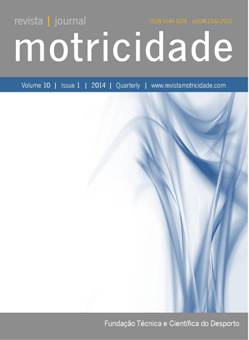Guidelines for planning, conducting, reporting and evaluating Systematic Reviews in Sport and Health
DOI:
https://doi.org/10.6063/motricidade.3699Abstract
Reliable summaries of the available evidence are essential to help researchers and practitioners make well-informed decisions. For this reason, the quality of the final result depends on the accuracy in each stage of the development of a systematic review. The aim of the present study is to draw guidelines and recommendations for planning, conducting, reporting and evaluating systematic reviews that support the work of researchers and reviewers. Initially, we address the main characteristics and differences of a systematic review compared to other literature reviews. Then, we describe the main procedures and concerns to be considered in each phase of developing a systematic review. Finally, we present a commented version of a checklist for reporting systematic reviews and guide the reader. We intend to contribute to the set of standards for the structure and quality of knowledge published in review papers, in the fields of Sport and Health, which support more informed decisions.
Downloads
Published
Issue
Section
License
The authors of submitted manuscripts must transfer the full copyright to Journal Motricidade / Sílabas Didáticas Editions. Granting copyright permission allows the publication and dissemination of the article in printed or electronic formats, and copyrights start at the moment the manuscript is accepted for publication. It also allows Journal Motricidade to use and commercialise the article in terms of licensing, lending or selling its content to indexation/abstracts databases and other entities.
According to the terms of the Creative Commons licence, authors may reproduce a reasonable number of copies for personal or professional purposes, but without any economic gain. SHERPA/RoMEO allows authors to post a final digital copy (post-printing version) of the article on their websites or on their institutions' scientific repository.


